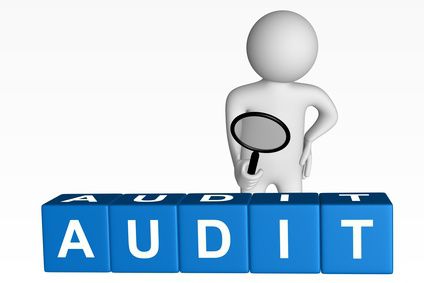Audit financial control. Audit of the enterprise
The auditor - the necessary and demanded profession inmarket economies. In Russia, companies engaged in relevant activities can act as partners of both private organizations and state structures. This is predetermined by the specifics of the socio-economic development of the Russian Federation, as well as by the peculiarities of the construction of the national economic system at the present stage. What are the nuances of the audit business? What are the specifics of the activities of firms in this profile in Russia?
Audit as a form of financial control
Russian legislation regulatingfinancial, tax and budgetary spheres, provides for carrying out appropriate inspections of the activities of organizations through various methods of control. One of its common forms is auditing. What is their specificity?
The organization of financial control can be carried out in various forms. There are corresponding checks carried out by state bodies, but there are those that are carried out by private structures.

Financial control can be classifiedas external or internal. The first is carried out if the subject of verification is a structure that is legally independent of the object. There is also internal financial control (also called intraeconomic), which organizations or government agencies conduct, using their own resources. The need for inspections of both types, as well as their frequency are regulated by law.
Audit financial control - one of the mostcommon forms of audits conducted by private organizations. Can be both external and internal. The quality of the related inspections is indirectly guaranteed by the availability of a special license from the inspecting firm (from 2010 - if we speak about the Russian audit market - a special kind of accreditation in specialized structures) to conduct profile activities.
Types of audit
As we said above, the audit can be externaland internal. These are the two main classifying criteria for this type of activity. Internal financial control of the appropriate type is carried out by specially formed services in the structure of the enterprise. The main task in the course of the meeting is to optimize the effectiveness of management policy. Especially in those areas that involve the use of economic resources involved in economic activities. External audit of the enterprise is carried out, in turn, structures de jure not related to the audited organization. The main criterion here is complete independence. The purpose of the external audit is to check the financial and accounting documentation (usually referred to the reporting category) of the enterprise and the activities of the firm for compliance with relevant legal norms.

Audit can also be mandatory eitherinitiated by the enterprise itself. Checks related to the first type are conducted proceeding from the requirements of the relevant legal acts. In addition, audit financial control can be initiated as a result of the decision of the authorities, including law enforcement. Internal audit, as a rule, takes place on the initiative of the owners of the company, investors, in some cases - the management structures responsible for managing the key economic resources of the enterprise.
The economic importance of auditing
The concept of auditing in countries with extensive experienceeconomic development in the conditions of the market, exists long ago. The appearance of control of the appropriate type is attributed to experts mainly by evolutionary changes in the structure of national economies. The market is becoming more competitive. Therefore, private enterprises strive to fully meet the criteria for the correct conduct of financial and accounting documentation, as well as the provisions of the regulatory legislation. This sign becomes one of the competitive advantages in a free market: an investor or potential partner will probably prefer to deal with a firm whose activities are completely legal, and the financial and accounting policies are as transparent as possible. On the other hand, the role of the state in national economies, even in countries where the level of freedom of the market is unquestionably high, remains significant. In the structure of the country's GDP and other macroeconomic aspects, budgetary financial flows are significant. In this connection, the state needs to establish control and supervisory structures designed to monitor the effectiveness of spending budget funds.

The concept of audit in the Russian business community,scientific circles, the system of state institutions as a whole is fairly close to those concepts that exist in Western countries. For the first time in the Russian Federation, audits received a legislative "registration" in 1993. Then came the Presidential Decree "On Auditing". According to this normative act, the audit financial control received an official definition, which sounded like an entrepreneurial activity to carry out independent inspections related to the type of non-departmental, financial (accounting) statements, various types of payment documents, tax documents and other financial obligations of enterprises. The subjects of the corresponding control, according to the legislation of the Russian Federation, are organizations of the widest range of business segments - banks, manufacturing enterprises, public funds, as well as individuals engaged in business individually.
Features of auditing in the Russian Federation
What kind of organizations have the right to carry outfunctions of financial control, attributable to auditing activities? According to Russian law, this can be both a legal entity and an IP. However, their activities should be concentrated exclusively in the field of audit. Until 2010, the work of such firms was subject to mandatory licensing. But after this practice was canceled. At the same time, the Russian auditors, in order for their activities to be legal, must be part of one of the self-regulatory organizations of auditors, or SRO. That is, have a kind of accreditation.

At the same time, as many experts note,registration of membership in the SRO - a procedure that in many respects has become more demanding than obtaining a license. Why? The fact is that obtaining a license, as some analysts say, was in fact a formal procedure. It was enough to pay the duty, as well as to form a small staff of auditors whose qualifications, as a rule, were not checked in any way.
Instead of a license, contributions
From the moment companies innovate in order toenter the SRO, it is necessary to show that their activities comply with the most stringent audit standards. In addition, the financial level of entry to the legal audit market has also increased. Membership in the SRO in most cases - a paid procedure. Organizations need to pay entrance fees, and in many cases also deductions to the so-called compensation fund SRO, intended for penalties in the event that the customer of services suffers from poor performance of the audit organization.
Methods of financial control
Having considered some features of the auditfinancial control in the aspect of requirements to the firms that conduct it, in the Russian Federation, we can continue our theoretical digression into the subject of the current issue. We will study the nuance associated with the methods of the corresponding checks. Which of them are most often used when audit independent financial control is being conducted?
Experts make the following basic:
- audits;
- Documentation analysis;
- study of financial plans;
- study of reports;
- study of information about officials.
The most common method in aspectdepartmental checks experts call the one that goes first on the list. The audit is, according to many analysts, one of the most comprehensive and comprehensive methods for studying the economic activities of organizations, which are applied by state bodies that implement the functions of financial control. In turn, for the audit as such, the most common are the other methods that we listed above. Some experts fundamentally differentiate the purpose of audit and audit. In the course of inspections of the second type, the controlling organization mainly intends to detect violations. At audit as we have told above, there is a research of economic activity of the enterprise for conformity to norms, that is, gaps in work, admitted by managers unintentionally, are revealed more likely.
State inspections
Having studied what is characterized by the auditfinancial control, we can consider aspects that reflect the specifics of government audits. That is, those that conduct government. The main factor that predetermines the conduct of appropriate inspections is the need to improve the effectiveness of fiscal policy.
Experts identify four main types of financial control conducted by the state:
- Parliamentary;
- Administrative;
- departmental;
- special.
Control of the first type is carried out by thethe counting bodies that are in the structure of the Federal Assembly of the Russian Federation and the relevant legislative bodies in the regions. Administrative checks are carried out by the executive bodies, accountable to the government, the president, and also to the regional power structures.

Departmental control implies carrying outrelevant procedures within individual authorities. This is a kind of internal checks. It is carried out by units and services created within specific departments. The object of inspections of this type is the financial or production activities of the authorities themselves, as well as the organizations accountable to them.
The special control provides for a narrowerspecialization of relevant inspections. Their focus can be focused specifically on the banking or, for example, tax and budgetary spheres.
Correlation of state and private control
How does the non-statefinancial control (one of the most common forms of which, in fact, is audit) and the one that conducts power structures? Many experts believe that both types of control interact with each other, but they are separated by virtue of the specifics of the methods, the difference in authority, and the purposes of carrying out the corresponding inspections.
State financial control is the maina set of procedures based on the legislation of the federal (or national - if the political and administrative division presupposes a unitary format) level, as well as those legal acts that reflect the powers of the power structures in the regions. Some analysts prefer to separate from the state municipal financial control (about its specifics - a little later), although they are very similar in tasks and methods.

The content of the rules and norms governing the audit,depends on the features of the political system and the specifics of the socio-economic development of a particular state. What the main difference between financial control systems in different countries is the level of involvement of relevant authorities in the affairs of private corporations. This factor also largely determines the characteristics that characterize non-state financial control practiced in national economic systems. In some countries, its methodology is very similar to that used by power structures, while in others it has completely different characteristics from official concepts.
Budget and benefits
However, the main criterion determiningdifferences between such phenomena as audit independent financial control and state verification are goals (actually, we already said this at the beginning of the article). Let's try to summarize their essence regarding both types of control. The main goal of state inspections is to maximize the efficiency of spending budget funds, and also to minimize other costs characteristic for the development of cash flows from the treasury. In turn, the audit of the enterprise, carried out outside the direct competence of the authorities (although conducted in accordance with official legislation) is designed to improve the efficiency of spending in terms of maintaining the maximum level of capitalization of the company. Some experts point out another noteworthy criterion. According to it, the state financial control is aimed at giving maximum dynamics to the receipt of funds to the treasury, to the budget. And the audit of the enterprise is designed to contribute to the solution of the absolutely opposite task - minimization of deductions in favor of the state. Of course, through legal mechanisms. That is, the auditor helps the firm to determine where in the legal acts there are loopholes allowing legally not to pay such taxes and fees (or to reduce the amount of their payment to a minimum).

Another criterion that predetermines dissimilaritystate and audit checks - publicity. In many cases, financial control exercised by the authorities must be extremely transparent. The results of the relevant audits are often subject to public coverage - through the media or information resources of agencies. All this, however, within the framework of achieving the main goal, which we voiced - effective implementation of the budget. It is thus calculated that other departments and organizations receiving budgetary financing will pay attention to the problems connected with the control over spending of funds from the treasury. This is on the one hand. And on the other - society. Appropriate social control also in many cases promotes that enterprises receiving funds from the treasury spend them more efficiently. While the results of private audits are not always subject to publication, moreover, they are often a trade secret. Especially it concerns internal financial control.
Municipal audit
Above we noted the following fact: along with the state there is also a separate municipal financial control. What is its specificity? The fact is that in the political structure of many countries there is a division of the powers of the authorities into several levels. Among them - municipal, or local. It implies the existence of self-government bodies in cities, regions and individual settlements (if we talk about the Russian model). At the level of each of the subjects of self-government, a separate budget can be formed. The effectiveness of implementation of which local authorities should also monitor. The methods for carrying out the corresponding checks at the municipal level are very similar, if we talk about Russian practice, with those for state control. This is mainly the same revision. There is also internal municipal financial control, in a form similar to departmental, which is implemented at the state level.
In some cases, if this is predeterminedlocal legislation (and it does not contradict the federal or regional), then the relevant authority at the local level can also initiate audits of enterprises with the involvement of private experts and organizations of the right profile. The criteria for choosing an auditor may be different, but the basic one we defined above is accreditation in the SRO. Internal municipal financial control, in turn, boils down to a study of the effectiveness of the development of budgetary funds within specific local government structures. However, as a rule, appeals to outside organizations do not occur.





